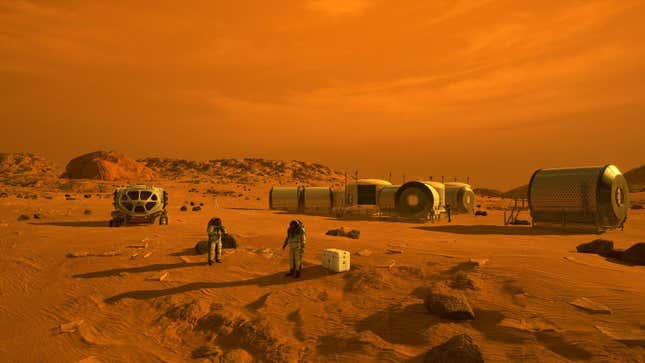
It might only take 22 people to establish a colony on Mars, though that small group of cosmic inhabitants should have agreeable personality types to survive on the Red Planet, according to new research.
Mars has been home to robotic explorers for nearly 60 years, but when it comes to landing humans on the Red Planet, things get a little more complicated. In a recent study uploaded to the preprint arXiv server, a group of scientists decided to look into the behavioral and psychological interactions among future Mars colonists and came up with a surprisingly small population size they say could build and sustain the colony: 22 would-be-Martians.
The scientists created a model to simulate a Mars colony based on high performing teams of people in isolated, high-stress environments such as Arctic exploration or the International Space Station. The simulation played out interactions between people with varying levels of skill, resilience, stress and one of four psychological traits: neurotic, reactive, social, or agreeable, in addition to the environmental factors on Mars.
The simulation ran for 28 Earth days, with varying numbers in each group that ranged from 10 to 170 people. The scientists found that an initial population of 22 was the minimum required to maintain a viable colony size, and that the agreeable personality type was the one more likely to survive on Mars. Neurotic personality types, on the other hand, died at a much higher rate than others, according to the study.
“We tend to often treat humans as just numbers or particles devoid of personal incentives, heterogeneity and adaptability,” Anamaria Berea, associate professor of computational and data sciences at George Mason University and co-author of the study, told The Register. “Human groups are complex systems where the outcome is not the sum of its parts, but synergistic.”
The researchers wanted to highlight the importance of considering human behavior as part of future space exploration. “We wanted to show that if we neglect the social, behavioral and psychological aspects of space explorations, we can err grossly in our estimations, predictions and projections,” Berea added.
For more spaceflight in your life, follow us on Twitter and bookmark Gizmodo’s dedicated Spaceflight page.